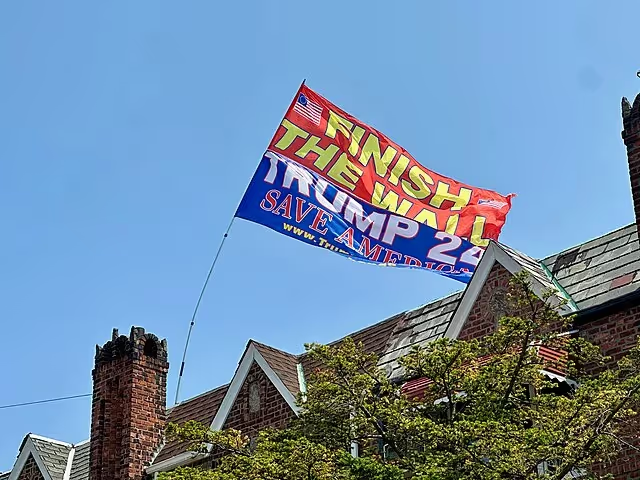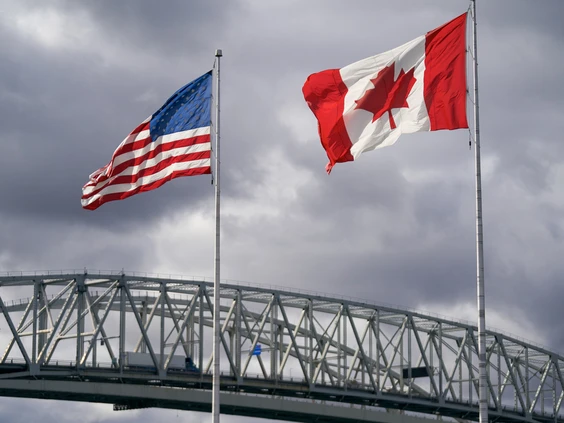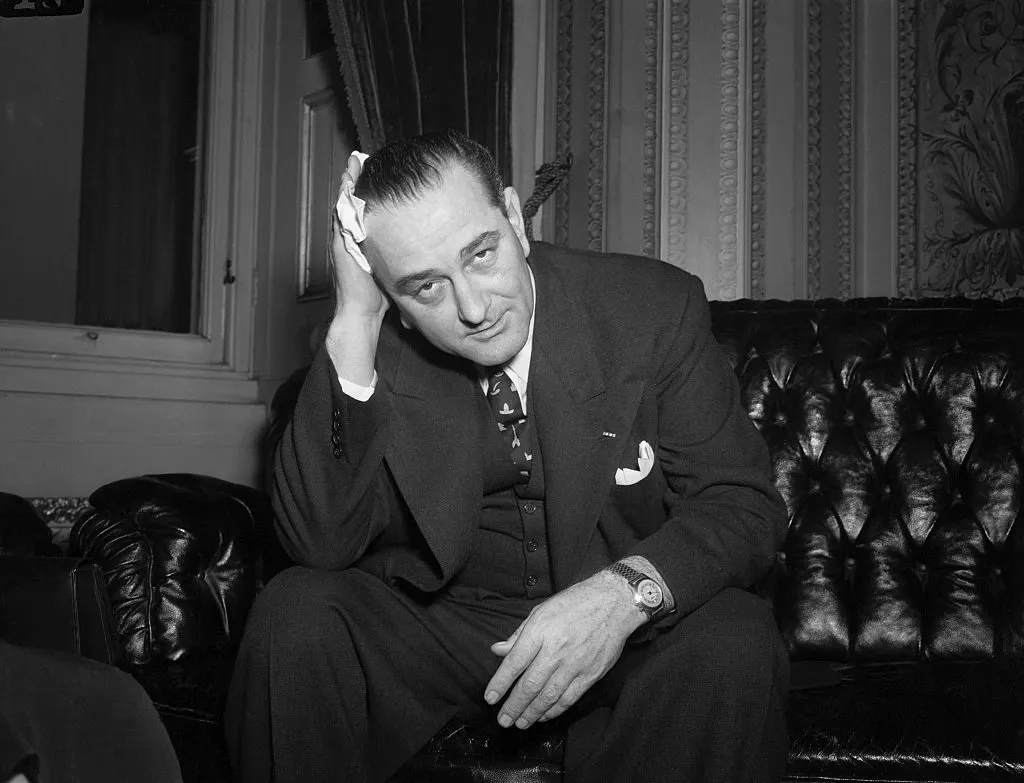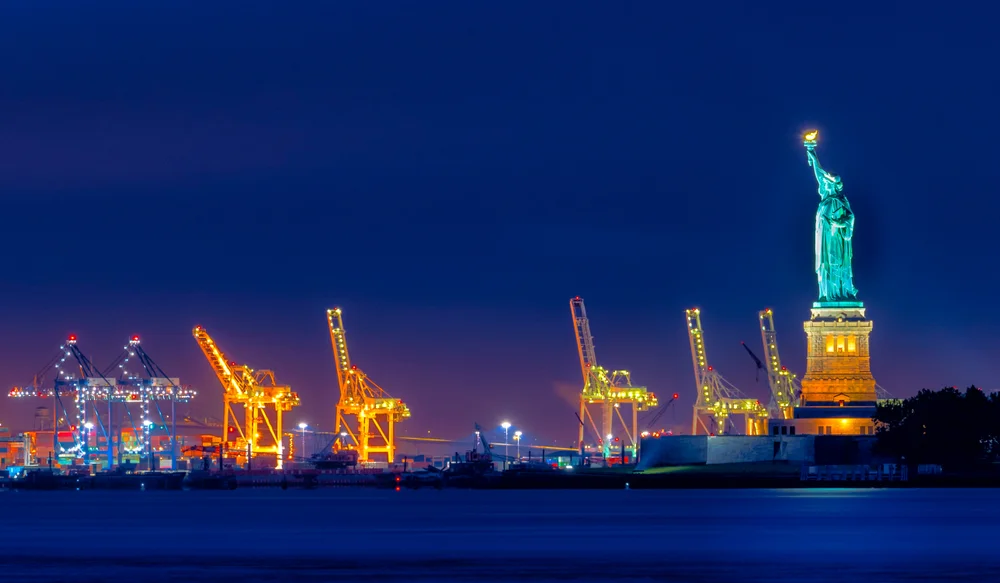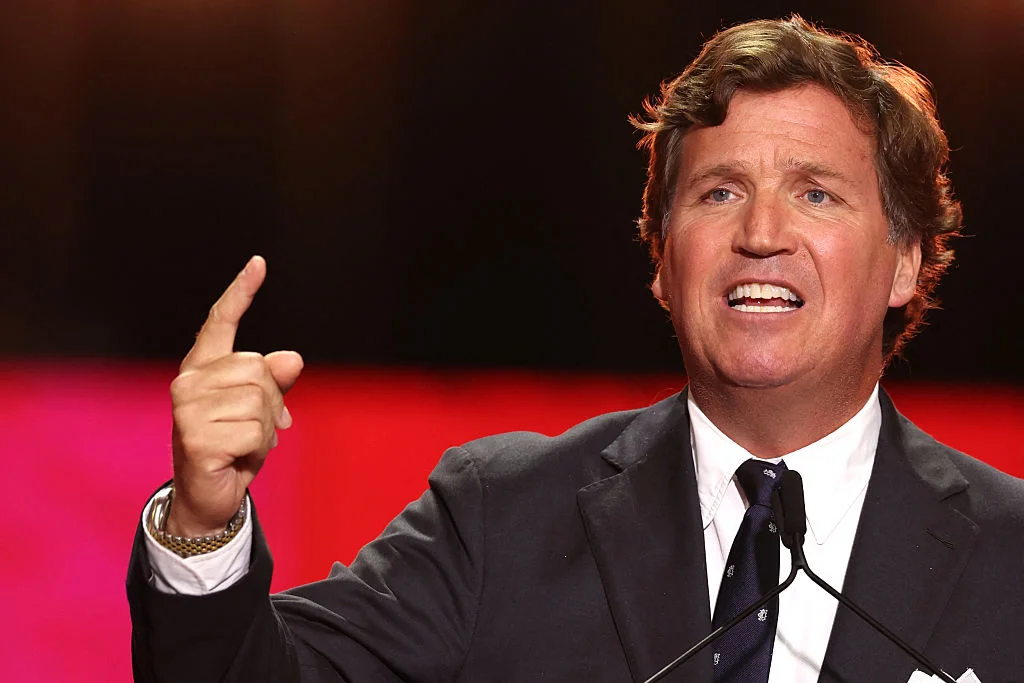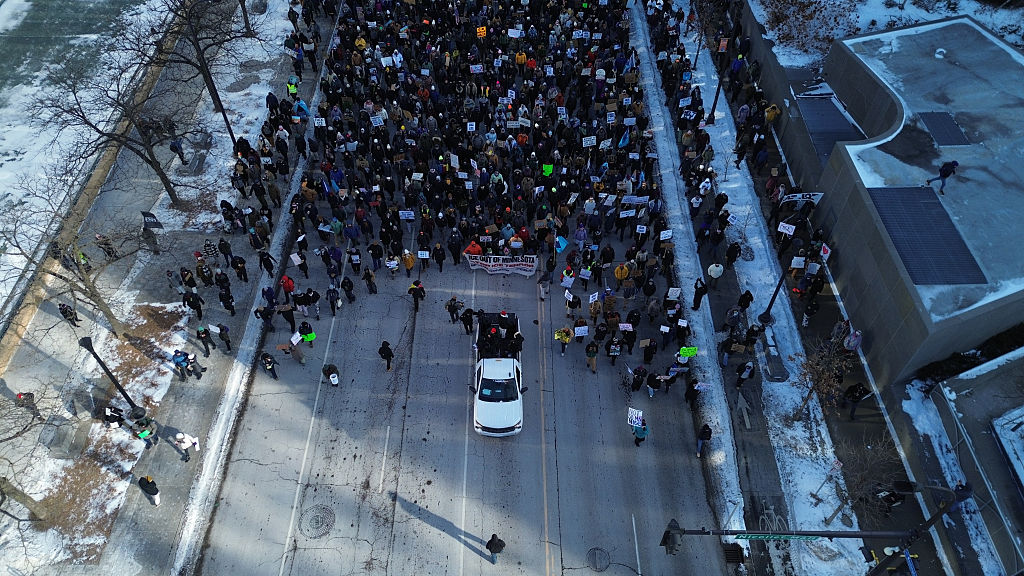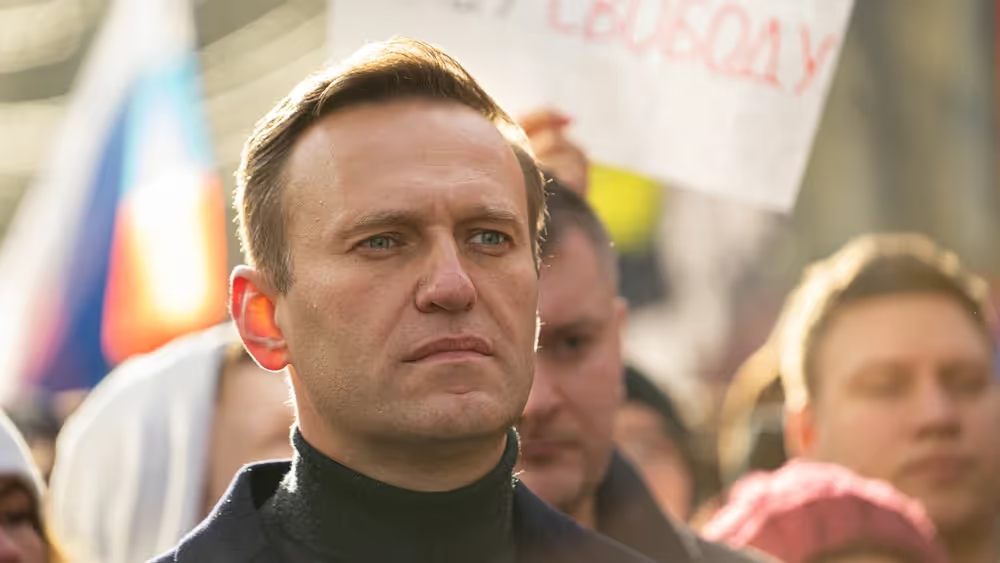
The Martyr’s Message
The book ends as it began, in hope.
“Dying really didn’t hurt” wrote Alexei Navalny upon recovering from an attack with the radioactive nerve agent Novichok on August 20, 2020. Did he suspect these would be the first words of his extraordinary posthumously published memoir, Patriot? Perhaps. Surely he could not have failed to interpret, even subliminally, his near-miraculous survival as a sort of temporary resurrection allowing him to spell out his take on Psalm 23:4: “Even though I walk through the darkest valley, I will fear no evil.” Especially not the evil that most people dread, death; for it does not hurt, not really, nowhere near as much as evil, lying, and fear itself.
That message of “good news” (Latin: evangelium), needs perpetual reiteration. In a secular age, moreover, it is delivered most credibly by one just returned from the netherworld. While Navalny never sought to become a martyr, circumstances and his inner moral strength turned him into one. He was bound to become a witness (Greek: martur) to the corruption and cynicism that destroyed the lives of millions in his own country and beyond. Most of his countrymen already knew that, but he still needed to reach the rest of us. Patriot became his epitaph.
No sooner was he able to leave the hospital than he returned to Russia to resume his mission, only to be arrested upon landing. Ironically, he would spend his last remaining year in the Gulag, occupying the same prison as one of the greatest dissidents of the twentieth century, Natan Sharansky. Soon, Navalny’s ingenious lawyers succeeded in obtaining from Sharansky a Russian copy of his world-famous 1998 memoir Fear No Evil. It prompted a historic exchange, with two letters exchanged between them.
In his first letter, written on March 30, 2023, Navalny recognized Sharansky’s even more improbable survival from hunger and torture. The book reminded him not only “that there are people who pay much higher prices for their convictions” but, most importantly, that the vast majority by far would remain nameless, absent from worldly chronicles. Victims of state murder who refused to sell their souls suffered torture and death for the sin of promoting the Golden Rule.
He was also struck by “the similarity between the two systems—the Soviet Union and Putin’s Russia - their ideological resemblance, the hypocrisy that serves as the very basis of their essence, and the continuity from the former to the latter.” Perhaps “all this guarantees an equally inevitable collapse” – not from any historical determinism but as a consequence of ideological venality.
Navalny’s eyes had been opened early on. He was only ten when he saw what happened to his grandparents’ beautiful village, close to Chernobyl. Following the deadly attack of radiation that would soon claim countless lives, the authorities had decided against warning anyone. (Never mind that the radioactive fallout was so extensive it was registered by laboratories all over the globe!) A May Day parade in nearby Kiev just had to proceed as scheduled. This “just five days after the explosion, for… propaganda purposes.” The whole area was displaced, and untold hundreds of thousands died from radiation. He could never understand “why the authorities were lying like this when everybody knew the truth.”
The answer would be provided by the Soviet-era screenwriter Vasily Shukshin: “Lies, lies, lies… Lies as a redemption, lies as atonement for guilt, lies as a goal achieved, lies as a career, as prosperity, as medals, as an apartment… Lies! The whole of Russia was covered with lies, like a scab.” The whole of Russia, not only the top echelon, but the millions of enablers. These demonstrate the banality of personal ambitions - often trivial - eclipsing evil, even on an apocalyptic scale.
Patriot includes the following words that Navalny delivered on December 30, 2014, on one of his many legal battles with the Putin regime, condemning not only the judge but also the jury that ruled against him (on charges rejected as absurd by the very “victim” the KGB had designated as aggrieved!):
There are huge numbers of people who are forced to do a vile thing, but then there are those (and this is the most common scenario) who do a vile thing without anyone coercing them or even asking them to. … [S]adly, the whole system of power in our beautiful country, and everything that’s happening, is based on endless lies.
We are all familiar with the phenomenon. Isn’t self-censorship on Western campuses ubiquitous, as both students and professors are afraid of being canceled? Is Navalny not our own prophet as much as Russia’s? He saw how ideology was little more than a façade for a collapsing political culture. Without respect for the constitution and the truth, without a moral compass, no nation is safe.
Navalny admitted that, like his fellow “educated people [who] knew what needed to be done,” he too originally defended Boris Yeltsin. “The entire Moscow intelligentsia was for us and against them” – i.e., the entrenched nomenklatura. How utterly short-sighted, he wrote Sharansky, to have been among the starry-eyed “who naively thought that there was no going back to the old ways. And for the sake of good, it’s okay to rig elections a little bit here, or influence the courts a little bit there, and stifle the press a bit over here.” Except that compromise seamlessly morphs into sell-out.
In retrospect, at the fall of the USSR in 1991, “an ideologically, economically, and morally bankrupt” sclerotic regime fell into the hands of two conflicting elites. The savvier “faction, in order to sweep away senile dotards, tricked itself out in more popular colors, those of ‘democrats and supporters of a market economy.’ With that slogan it seized power.” They deceived not only the nation and the world but often themselves. “The reformers did more thieving but looked more presentable.” The West was duped, too.
As Yeltsin gradually disintegrated into an alcoholic mess, Russia was descending into the abyss. By 1998, it looked like the bottom had been reached: after being devalued, the ruble collapsed altogether, payments to foreign creditors were suspended, and banks went bankrupt. Most ordinary Russians lost all their life savings. Visiting Moscow that year, I vividly recall how nearly everyone I met recounted terrible stories of parents and relatives becoming destitute overnight.
Yeltsin and his family amassed wealth, alongside a handful of well-placed oligarchs who were busy stealing the nation’s natural resources by buying them at nominal prices. Had there been any semblance of the rule of law, the outraged populace might have voted for a change. However, in 1999, Yeltsin bypassed the entire democratic process by appointing the unprepossessing KGB officer Vladimir Putin as his successor. Navalny was livid: “Putin was being foisted on Russia as payment for his loyalty and willingness to provide legal immunity to the former president and his family,” whom practically everyone loathed.
By now, a lawyer with experience in the corporate world who was about to marry his soulmate and soon become a father, Navalny could no longer stay on the sidelines. He decided to join the opposition group Yabloko, “which bore more resemblance to a bunch of amiable nerds,” but at least “it was the only genuinely democratic party, overtly opposed to Putin, and that seemed preferable.” But it was hopeless; “scared to experiment,” Yabloko preferred backroom deals with the Kremlin to winning popular support. Navalny concedes that its leader, Grigory Yavlinsky, was telegenic, but utterly without vision.
Navalny’s career took off in 2003, with the formation of a three-person led Democratic Alternative Movement (DA! Russian, “Yes!) that started holding public debates in various sympathetic venues. Their exploding popularity naturally prompted an official clampdown. When they turned to television and newspapers, these were censored. That left, ironically, both the least expensive and, by far, the most effective medium: the internet. “No one in the Kremlin realized that the internet mirrored real life. … Rather than a backwater, it was infrastructure.”
Perhaps more important still was his groundbreaking initiative to apply his legal experience, including tools learned at Yale University in the United States, to uncover the billions stolen by state-owned oil and gas companies, specifically Transneft and Gazprom. He invested approximately $5,000 to become a shareholder, attended public meetings where he asked questions, demanded financial documents, and, with the help of volunteers with special expertise, exposed mind-boggling levels of fraud. The results, in turn, were presented on his Livejournal blog whose audience skyrocketed, as did his YouTube videos, Twitter, Instagram, and TikTok postings.
His Anti Corruption Foundation (ACF), alongside branches of his presidential campaign, called Navalny’s HQs” – soon the largest opposition group in Russia – gradually mobilized a colossal grass-roots movement. But undoubtedly, the AFC’s most successful projects were two films: the first, which was shown on March 2, 2017, exposed Dmitry Medvedev’s network of charitable foundations that took money from oligarchs and registered his luxury homes. It destroyed the former President’s career, “and became a turning point for the whole opposition movement.”
An equally powerful exposé was broadcast internationally on January 21, 2021, this time aiming even higher: “A Palace for Putin. The story of the biggest bribe in history.” While the screen reveals explosive footage of a pharaonic $1.35 billion residence, Navalny narrates, explaining the scheme behind the construction. The most watched YouTube video of the day, it reached an audience of 40 million the next day, 60 million by day 3, and a whopping 100 million worldwide on January 29. The political impact of such informational blitzkrieg is immeasurable. His team’s tactics were groundbreaking, justifying the assessment by Australian Russia scholar Robert Horvath that Patriot “is destined to become the canonical text of Russia’s democratic tradition.”
Which is why it is also a very sad book by a young, funny, loving father, husband, and friend, finally crucified at 47. In the epilogue, he describes how on his last visit with his adored soulmate Yulia, knowing it would be his last, he “whispered in her ear, ‘Listen, I don’t want to sound dramatic, but I think there’s a high probability I’ll never get out of here…. They will poison me.’ ‘I know,’ she said with a nod, in a voice that was calm and firm. ‘I was thinking that myself.’” Then they decide to accept that scenario but hope for the best. She responds, “Yep. Let’s do it.” And she bursts out laughing. Whereupon he sweeps her up in his arms, ready for anything.
The book ends as it began, in hope. Navalny had become a believer after the birth of his daughter in 2001: “Like anyone who grew up in the Soviet Union, I had never believed in God, but looking now at Dasha and how she was developing, I could not reconcile myself to the thought that this was only a matter of biology. That did not alter the fact that I am a big fan of science, but I decided at that moment that, on its own, evolution was not enough. There must be more.”
Much more, including what dissident-mathematician Sharansky had called “the law of universal gravitation of souls,” attracted by “the virus of freedom” and immunized against fear. Navalny wholeheartedly agreed. That virus, he had written Sharansky on March 30th, “far from being eradicated,” had swelled to “tens and hundreds of thousands who are not scared to speak out for freedom against the war [in Ukraine,] despite the threats.”
In his response, Sharansky notes that the letter reached him on the very eve of Passover (providentially?):
On this day I am sitting at the celebratory meal wearing a kippah, which was made 40 years ago, out of my footcloth, by my cellmate—a Ukrainian inmate in the Chistopol prison. That’s how twisted everything in this world is! I wish to you, Aleksei, and to all of Russia, an Exodus as soon as possible.
Whereupon Navalny responds with gratitude, assuring his friend that he continues to believe that, contrary to “‘Ecclesiastes’ [message that] what was, will be,” he absolutely “continue[s] to believe that we will correct it and one day in Russia there will be what was not.”
Sharansky wrote immediately, a quick note, because “[i]t is important for the connection between people and worlds not to be interrupted. I cannot say—between the free world and the unfree world, as you are today more free than many (if not most) people in both parts of our world. But I know that for your freedom you are having to pay—with health, worries for your family, and eventually with your life.”
Navalny never responded. He died on February 16, 2024. The iconic letters were published by The Free Press the following day. And the connection between the free and the unfree world persists so long as the “virus of freedom” resists satanic attempts to eradicate it.
Juliana Geran Pilon is Senior Fellow at the Alexander Hamilton Institute for the Study of Western Civilization. Her latest book, An Idea Betrayed: Jews, Liberalism, and the American Left, has just been published.
Politics
.webp)
Liberal Democracy Reexamined: Leo Strauss on Alexis de Tocqueville
This article explores Leo Strauss’s thoughts on Alexis de Tocqueville in his 1954 “Natural Right” course transcript.
%20(1).avif)
Long Distance Migration as a Two-Step Sorting Process: The Resettlement of Californians in Texas
Here we press the question of whether the well-documented stream of migrants relocating from California to Texas has been sufficient to alter the political complexion of the destination state.
%20(3).avif)
Who's That Knocking? A Study of the Strategic Choices Facing Large-Scale Grassroots Canvassing Efforts
Although there is a consensus that personalized forms of campaign outreach are more likely to be effective at either mobilizing or even persuading voters, there remains uncertainty about how campaigns should implement get-out-the-vote (GOTV) programs, especially at a truly expansive scale.

International Law Is Holding Democracies Back
The United States should use this moment to argue for a different approach to the rules of war.
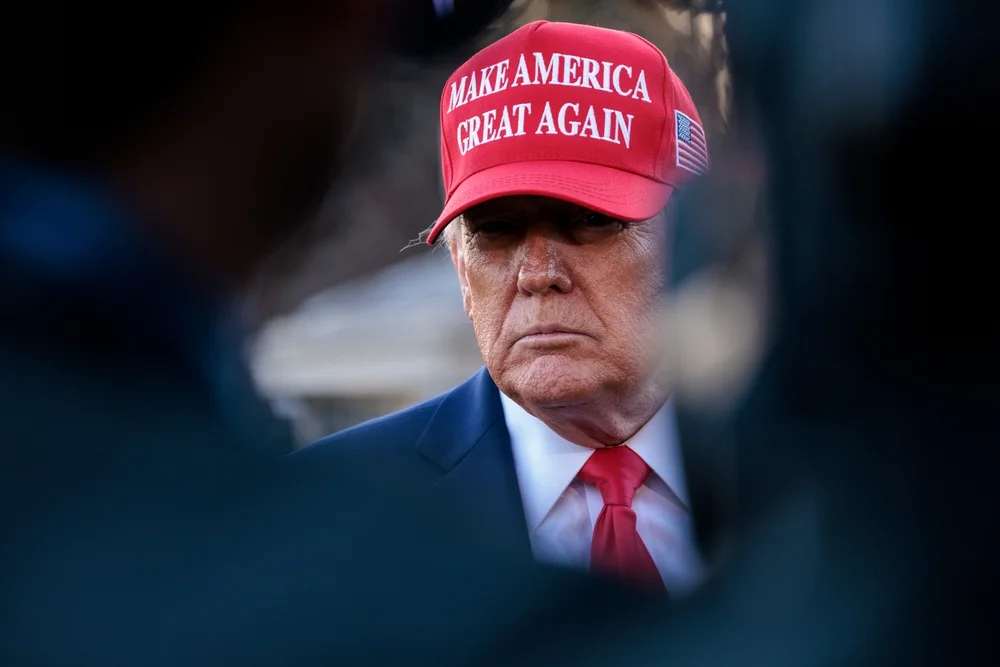
Might the "New Right 5.0" Be the Old Fusionism?
Since the self-conscious conservative movement came together in the 1950s, a "new right" has emerged every few years.


